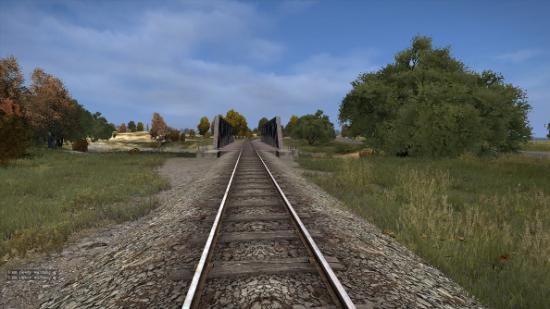You’ll know an Early Access horror story or two – the sorry tale of a studio impotently trying to make amends for goals unmet, or worse, going dark and disappearing without even a forum post. They’ve left questions in need of answering: who in 2015 volunteers themselves for that kind of public scrutiny and potential disaster? And does Early Access need more structure?
For Train Simulator veterans Dovetail Games, Steam Early Access felt like a natural extension of their approach to development.
“Philosophically we’re quite an open company: anyone can have an idea and everyone’s opinion matters,” explained development director Darren Potter. “We buy a lot of Early Access titles and we kind of liked that aspect of it.”
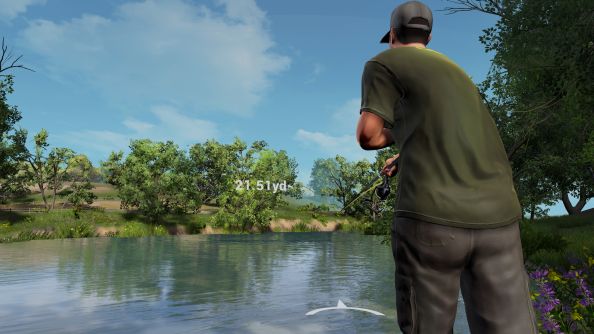
Last Autumn they were beginning work on their first angling simulator, Dovetail Games Fishing. They wanted to get the feel of casting and reeling right before anything else.
“We were focused on getting that game experience to absolutely how we wanted it and how the community expected it without having to worry about, ‘Oh my God, a character’s floating a little bit over here’ or ‘There’s a tree out of place’,” said Potter. “It made obvious sense for us to do it in Early Access.”
The greatest potential issue Dovetail faced, as they saw it, was clarity. The game’s first release was pushed out alongside a Steam video that detailed exactly what players would find in the game.
“To me that should be common practice,” said Potter. “We take great pains to try and be as upfront and as honest as we possibly can with what exactly it is we’re offering, what people can expect in terms of the experience they’re buying at every particular phase that we release at. So we’re not trying to tell people to buy the game based on promises.”
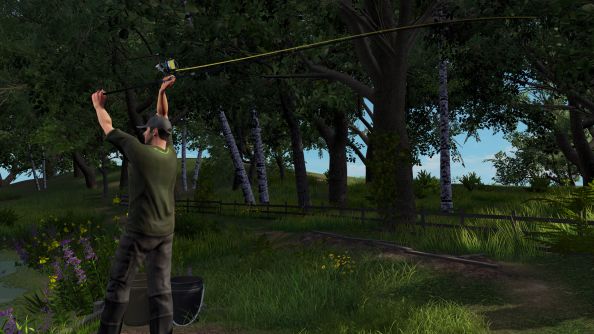
While Dovetail Games Fishing was designed in “relatively traditional” fashion, the studio decided that its development would need a solid structure. A backbone which, like those of the carp players would be landing, would be both sturdy and flexible.
“We knew that there were things that we needed to make in a certain order to make the full experience,” said Potter. “There were always going to be big features which we had to develop in a certain way.”
Phase One concerned rod and line behaviour, while Phase Two has been given over to fish AI and exploring the environment. But there are other features less critical to the roadmap – and those are where the community holds sway.
Phase One featured third-person casting, with a first-person camera scheduled to be looked at some months later – until Early Access players made it known that seeing from their angler’s eyes was particularly important to them. It was, you could say, a matter of different perspectives. Dovetail have changed their plans to suit.
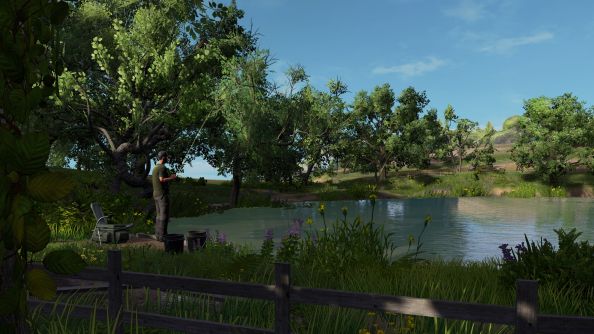
“We basically use agile planning methodologies,” said Potter. “If the community think that a feature is a high priority, we can adjust what we’re making and when. We don’t lose track of any of this stuff – it’s not like we’re deleting it off never to be remembered again. It’s just an order of priority.”
What Dovetail don’t want is to leave Fishing in Early Access for a protracted length of time, as Bohemia have done with DayZ.
“We’re not going to be in that situation,” said Potter. “I think Day Z was an interesting game because there were so many new things in there that had never been tried or were new to the company. Whereas we’re a relatively experienced simulation company, we know the pitfalls of making simulation games.”
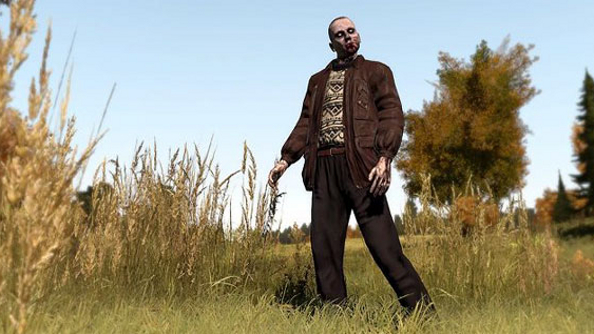
Brian Hicks is DayZ’s producer. After over a year working in Early Access, he’s decided there’s a flaw in the model.
Hicks believes that Steam Early Access as it currently stands is too ambiguous. And that rather than continue their characteristically hands-off approach, Valve ought to “step more into the role of a publisher” – listing the intended duration of a project and setting milestones clearly visible to potential buyers.
“I feel the onus of fixing this is on the platform that launched Early Access, Steam specifically,” said Hicks. “I feel that Valve have left the definition and structure of what Early Access is too out there.”
Hicks used to work as a project manager at Microsoft Studios, and praised the “common language” that publishers use to track the state of a game throughout development.
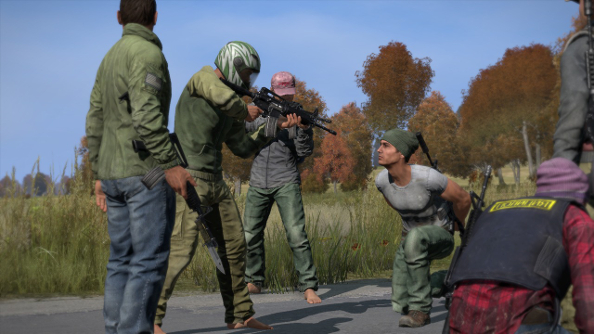
DayZ was first released as what Microsoft would call a ‘first playable candidate’ – an early build in which players are able to navigate and interact with the world without frequent crashing.
“We had three or four months of hard crunch from the start of our principal development,” said Hicks. “The team went from just Dean and a couple of programmers to an actual development team. We got to that first playable build of DayZ and we warned the hell out of people, told them there’s going to be bugs, and they jumped on board.”
Since then, however, players have sometimes pointed to other finished Early Access games and asked why DayZ wasn’t among them.
“It’s because Game A went in halfway through its development cycle or because game A’s scope was a little smaller,” said Hicks. “The problem is we’re giving people access to the development cycle but we’re not communicating when we do it or how we do it. It’s confusing.”
Terms like alpha and beta are ill-defined, and “everyone is doing things differently”.
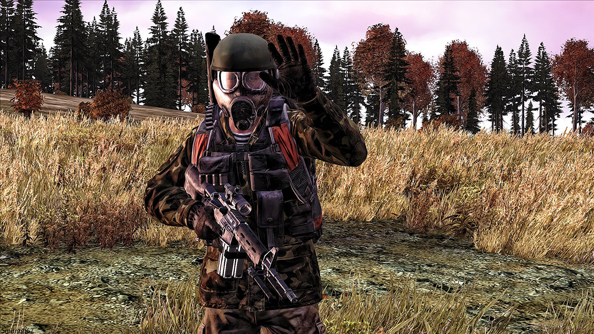
“There was a Battlefield beta not long ago which I can guarantee was near the end of their development cycle,” pointed out Hicks. “The last alpha I can think of is Heroes of the Storm: it wasn’t at the beginning or at the end, but it was far into development.”
Hicks imagines a structure to Early Access projects that potential buyers could look to for guidance; a thermostat on a Steam page that would indicate how far along a game is. Moreover, he suggests Valve only admit games young enough that players could still influence their design.
“If Valve had been there to say, ‘You need to use these terms for this phase of your development’, things would have been far more understandable for the consumer,” said Hicks. “Without the platform defining what Early Access is and curating a bit more, kind of like a publisher-lite, we’re going to continue to have this issue.
“I think Early Access works if we can learn from how it’s been so far and apply a more structured case for it so people can understand.”
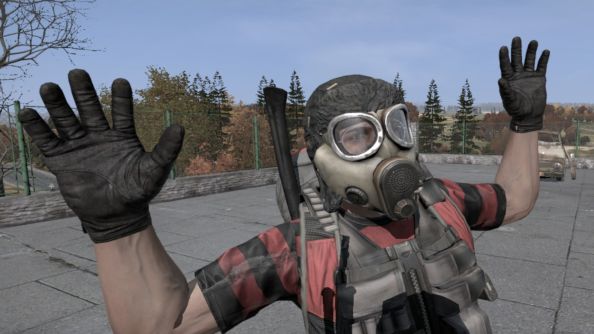
Valve, for their part, do appear to be learning. Before Christmas, they introduced new Steam Early Access rules that asked developers to set proper expectations for their games. Devs now have to make clear wherever Steam keys are sold that projects are unfinished, and refrain from making promises their budgets can’t keep.
What’s more, Valve have told teams not to launch in Early Access without a playable game or – self-explanatory though it might seem – an unfinished one.
The new guidelines arrived shortly after Dovetail Games had launched their first build.
“We welcome them, to be honest,” said Potter. “We know what the budget for Fishing is, and we’re not reliant on sales to help us achieve our main goal, which is to create the greatest fishing simulation made to date. So we’re in it for the feedback rather than for the cash.
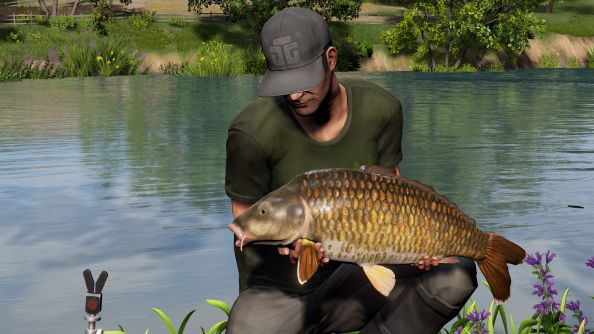
“I guess what [the rules] do is protect the consumer a little bit more. The fact that consumers can take part in these Early Access offerings now with a certain degree of trust that they’re going to be finished is definitely a good thing.”
Though his opinion on the service differs from that of Hicks, Potter hopes that the rules will help educate Steam users about what Early Access means.
“I’m pretty sure Valve have been really good in terms of saying, ‘Look, you’re buying this Early Access game, there will be bugs’, etcetera.
“[But] I think it’s also good to re-educate and make sure that people understand exactly what they’re getting up front: they’re not paying for a finished game, they’re paying for something that they really, really want to be involved with and to help shape.”
Dovetail Games Fishing is now in Phase 3 of Early Access. It features improved line and casting, varied fish with complex AI, casting challenges and new leaderboards.
